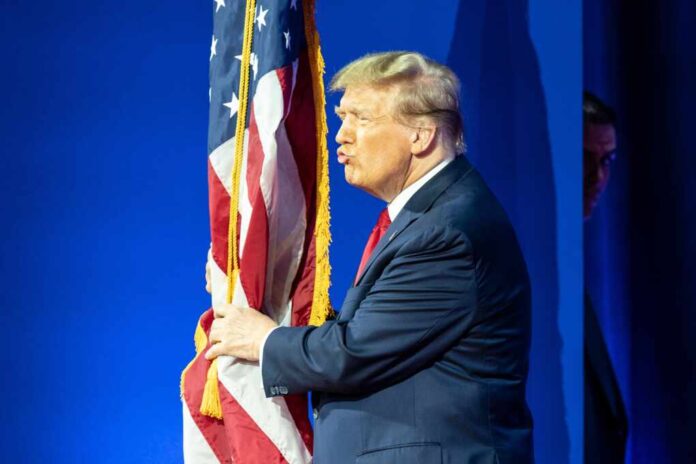
Another state has joined in on the controversial effort to strip former President Donald Trump’s name from the ballot over claims that he is ineligible due to the so-called “insurrection clause” of the U.S. Constitution’s 14th Amendment.
As the U.S. Supreme Court considers evidence in a case related to Colorado’s push to disqualify Trump, his name has been included in Republican primary ballots in that state as well as Maine, where Secretary of State Shenna Bellows unilaterally decided that it should be removed.
This week, however, Cook County Judge Tracie Porter handed down a similar ruling that claimed Trump was constitutionally ineligible to be listed on the ballot in Illinois. She acknowledged, however, that the decision might “not be the ultimate outcome” and placed a hold on the enforcement thereof in anticipation of an appeal by Trump’s legal team.
ELECTION INTERFERENCE: The Illinois judge who removed Trump from the state’s ballot handled traffic tickets and minor misdemeanors. If every traffic court judge in the country can remove the leading presidential candidate from the ballot our country is doomed. pic.twitter.com/kwX6SagXID
— @amuse (@amuse) February 29, 2024
In the interim, the GOP front-runner’s name will remain on the ballot, at least for the time being, as the state’s March 19 primary date approaches.
Attorney Caryn Lederer, who presented the case against Trump to the court, called Porter’s ruling “a critical decision that is adding to decisions in Colorado and Maine on this point,” claiming that the judge “really engaged with the evidence that was presented to her and that was before the electoral board to render a decision about what happened on Jan. 6 [2021] and President Trump’s involvement.”
Trump, of course, has been neither tried nor convicted of leading an insurrection, and campaign spokesman Steven Cheung denounced Porter’s decision in unambiguous terms.
“This is an unconstitutional ruling that we will quickly appeal,” he declared.
Cheung went on to describe Porter as “an activist Democrat judge” who “summarily overruled the state’s board of elections and contradicted earlier decisions from dozens of other state and federal jurisdictions.”
Although the nation’s highest court has yet to deliver its verdict regarding the Colorado ballot challenge, statements by justices during oral arguments earlier this month suggest that a majority is likely to rule against the state.
“Your position has the effect of disenfranchising voters to a significant degree,” said conservative Justice Brett Kavanaugh to attorneys representing Colorado’s position.
Even left-leaning justices expressed skepticism about the merits of the claim, including Justice Ketanji Brown Jackson, who noted that the 14th Amendment is specific in its list of public offices impacted by the applicable clause.
“They were listing people that were barred and ‘president’ is not there,” she explained. “I guess that just makes me worry that maybe they weren’t focused on the president.”
































